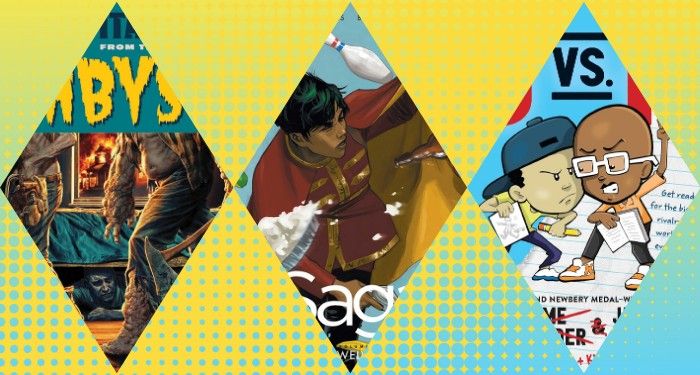Now Reading: Meta Says Pirated Books are Both Invaluable and Worthless, and More Library News
-
01
Meta Says Pirated Books are Both Invaluable and Worthless, and More Library News
Meta Says Pirated Books are Both Invaluable and Worthless, and More Library News

This post includes affiliate links. We may earn a commission if you purchase through these links.
Katie’s parents always said “yes” whenever she wanted a book, leading to many of her challenges. She holds an MLIS from the University of Illinois and serves as a Circulation & Reference Manager in Illinois. Katie has a profound interest in all things eerie, twisted, and scary, delighting in unsettling her colleagues. When not working, she enjoys watching the Cubs with her cats and cardigan collection at home. Her hobbies include scrapbooking, introducing readers to the works of Tana French, and convincing her husband that she can squeeze more books onto their shelves. Twitter: @kt_librarylady
See all posts by Katie McLain Horner
Hey librarians, I have some intriguing updates for you. Apart from the usual news on censorship lawsuits and legislative changes, there’s an intriguing analysis on Meta’s legal defense for utilizing copyrighted texts to train their AI model, and some unique insights on genres.
Vanity Fair editor Keziah Weir delved into the documentation concerning the significant Meta copyright lawsuit and found that Meta’s defense relies on the argument that a collection of 7 million copyrighted texts is crucial for developing their AI data models, while the individual texts themselves are deemed “essentially, worthless.” Weir likens this argument to refusing payment to every musician in an orchestra because a single bassoonist can’t play all the parts in “The Rite of Spring.” This level of mental gymnastics might rival Simone Biles, and one can only hope that the judge assigned to the case responds with a simple “no.”
Non-Sentient Romance
I can’t top this Lithb headline: “Genre alert: Women who are sexually attracted to airplanes… and other non-sentient objects.” While it’s true that there’s a historical backdrop of characters falling in love with non-sentient entities in literature (like Pygmalion and the Epic of Gilgamesh), recent books such as Blob and Sky Daddy are discussed in the article. Notably, these books lean more towards literary fiction than romance (and thus deviate from typical genre conventions), but considering we had a romance novel titled Kissing the Coronavirus in April 2020, it will be interesting to see how this trend unfolds.
The Impact of Misinterpreting Science Fiction
In genre-related news, The Guardian ponders whether science fiction could ultimately spell doom for the world. Put another way, might figures like Elon Musk inadvertently lead to global destruction due to a lack of understanding of science fiction nuances? It’s one thing to misconstrue a novel or genre entirely (shoutout to those who misunderstand Patrick Bateman), but it’s concerning when these misunderstandings shape the core of individuals who hold substantial economic, technological, and political influence worldwide. It’s as if they’re turning into the antagonists of their own science fiction narratives, only this time, it’s reality, and countless people may suffer because these individuals didn’t grasp critical thinking skills earlier.
Check Your Shelf
Sign up for Check Your Shelf, the Librarian’s One-Stop Shop For News, Book Lists, And More.





